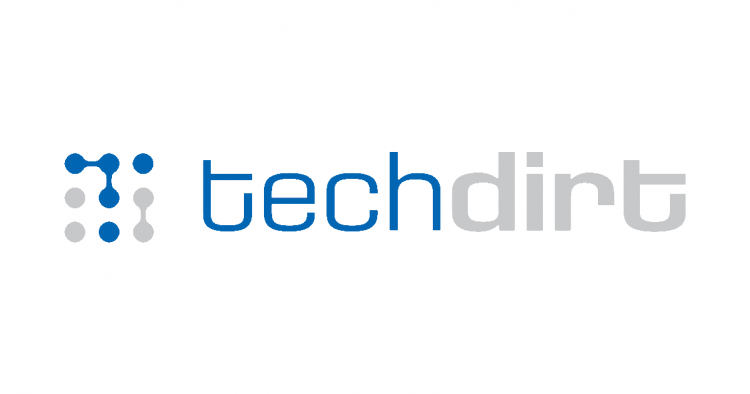from the please-pay-us-billions-of-dollars-for-absolutely-no-reason dept
Last year we noted how FCC Commissioner Brendan Carr had launched a bad faith effort suggesting that “big tech” gets a “free ride” on the internet, and should be forced to fund broadband expansion. This argument, that tech giants like Google and Netflix somehow get a free ride (they don’t) and should “pay their fair share” to fund broadband expansion is a 20 year old AT&T lobbyist talking point.
It’s basically just a telecom lobbying effort to exploit growing (and often valid) animosity at “big tech” to pad big telecom’s coffers. And despite being violently stupid, it’s contagious and spreading.
As the EU contemplates its digital policy trajectory for the next decade, the idea that “big tech” should pay “big telecom” for no coherent reason has also managed to unsurprisingly surface. The rhetoric, that “big tech” gets a “free ride” on the Internet and should therefore give telecom giants billions of dollars, directly mirrors the policy con telecom giants have been running in the U.S. since 2003 or so.
Hoping to talk some sense into EU leaders, a coalition of 29 telecom experts and academics (including myself) have signed off on a letter to EU Commissioners Margrethe Vestager and Thierry Breton, urging them to fight back against the telecom industry’s ploy to tax big tech:
The ideas behind this proposal represent a fundamental misunderstanding of the structure of the internet. First, just like prior proposals, this proposal is based on the mistaken assumption that content providers are causing traffic on broadband networks. Broadband users are requesting this traffic, and they already pay their broadband providers to deliver this traffic to them. Forcing content providers to pay broadband providers for delivering this traffic to their subscribers just results in broadband providers getting paid twice for the same service.
Telecom lobbyists approach a captured politician, urging them to embrace making “big tech” pay for broadband funding. This is then framed as a noble quest to “cure the digital divide,” providing said politician with political brownie points.
The problem, in both the U.S. and the EU, is that telecom giants have hoovered up countless billions in taxpayer dollars for next-generation networks that are then never fully delivered. The answer to this problem is holding telecom giants accountable for decades of subsidy fraud, ensuring that the money we’re already throwing at telecoms is actually used to fund future-proof fiber and 5G.
We’re generally… not doing that. Instead, telecom giants have shifted the conversation to line their pockets further, which is usually dressed up as an adult policy conversation when it’s anything but.
Carl Gahnberg and David Frautschy at The Internet Society have also penned a more technical piece explaining why the plan is a dumb idea. And they’re quick to focus on what happened in South Korea, where clumsy “sender pays” regulation has resulted in an environment where ISPs often try to claim that companies like Netflix owe them even more money just because certain shows are successful.
If you’re interested, Harold Feld had a good Twitter thread explaining how longstanding “sender pays” peering arrangements terminology in telecom was hijacked by industry lobbyists to try and make their cash grab sound like adult policy making:
First, telcos like to frame this as “sender pays.” That phrase actually has a long-standing meaning in the telecom world and this ain’t it. Furthermore, if we genuinely adopted a “sender pays” regime, ISPs would not like it much. /2
— (((haroldfeld))) (@haroldfeld) September 29, 2022
In telecom policy circles, there’s a lot of technical and legal jargon that tends to obscure what’s actually happening here. And what’s happening is that influential telecom giants are corrupting the regulatory process to effectively double dip and get paid extra for absolutely no reason.
Fortunately there’s a “tell” for which politicians and regulators are operating in bad faith on this subject. One, they’ll always claim “big tech” gets a “free ride on the Internet” (or some variation) despite the fact tech giants pay billions for infrastructure or bandwidth. Two, they’ll rarely meaningfully support telecom subsidy reform if it at all inconveniences the biggest telecom giants.
If you want to address the digital divide, the very first step should be reform of existing telecom subsidy programs so that you ensure existing funds aren’t wasted. These guys with a head full of telecom lobbyist chatter don’t do that; they instead immediately turn to the idea of taxing giant tech companies, throwing even more cash in the laps of a telecom industry with a fifty year history of outright fraud.
That’s not to say there’s not a future where tech giants help subsidize broadband to the poor. But right now, most of these pushes aren’t being proposed in good faith. They’re being proposed by captured policymakers with a pocket full of telecom campaign cash, looking to capitalize on big tech animosity to throw billions of additional dollars at a telecom industry whose subsidy fraud we generally refuse to police.
Filed Under: big tech tax, digital divide, eu, high speed internet, net neutrality, sender pays, telecom
Source by www.techdirt.com




























